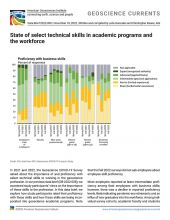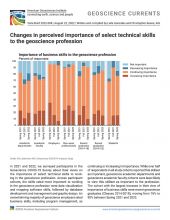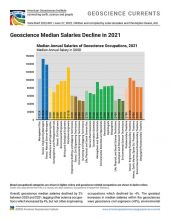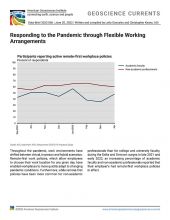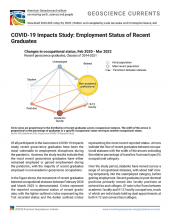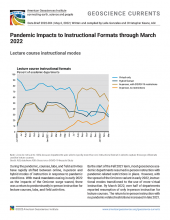Briefing Report from the Meeting of the National Academies of Sciences, Ocean Studies Board, May 20, 2020
Summary
- COVID-19 has disrupted most ocean-based activities such as research, operation of governmental agencies, and tourism.
- Academic institutions and governmental agencies are developing new protocols and re-prioritizing ocean activities to ensure the protection of the individuals that are still carrying on work during the pandemic.
- Funding and revenue will be impacted in the long term, but extensions, emergency funding, and other strategies are being employed to mitigate the impact of COVID-19.
Terry Quinn - National Science Foundation (NSF), Division of Ocean Sciences
The Academic Research Fleet (ARF) will restart activities on July 1, 2020. Currently all vessels of the ARF are in their home ports except Research Vessels (R/V) Thompson and Langseth. Additionally, R/V Sikuliaq embarked on a limited cruise to support the Northern Gulf of Alaska Long Term Ecological Research Program. The University-National Oceanographic Laboratory System (UNOLS) has been collaborating with the U.S. Coast Guard, WHO, CDC, and local authorities to develop a mitigation and response plan for ocean-operations during the COVID-19 pandemic. Cruises are being evaluated to justify their operations, assessed whether they are of immediate need, or if they can be postponed. Sea-going missions will only embark with consensus from the Principal Investigator (PI), captain, and the operating institution. NSF will post updates regarding community guidelines along with other COVID-related information at www.nsf.gov/coronavirus. The Ocean Sciences (OCE) list-serve will provide further announcements and updates on ship operations, COVID-19 impacts, and upcoming proposals (www.nsf.gov/geo/oce/oce-listserv.jsp).
PI’s should document the specific impacts of the COVID-19 pandemic on their research in order to move funding across budget lines in accordance with NSF guidelines. No-cost extensions are available to NSF awardees. Supplements for up to 20% of the original award will be at the discretion of program officer. Community support is encouraged to develop mitigation strategies for the impacts of the pandemic on funding and operations and to communicate the research community’s needs to NSF. The CARES Act awarded NSF with $75 million for COVID-19-related research proposals, but most funding has gone to medical-related research fields.
Captain Ricardo Alonso – U.S. Coast Guard (USCG), Office of Marine Environmental Response Policy
The USCG is actively working on a COVID-19 pandemic response. National security, life and property protection, and Marine Transportation System operations are being prioritized, and a COVID-19 Crisis Coordination Team has been created. Strategies such as medical screening, use of personal protection equipment, sanitation efforts, COVID-19 case records, personnel debriefing, and isolation/quarantine have been put in place to mitigate the effects of COVID-19 and protect the USCG workforce. Industries that the USCG oversees are also being encouraged to follow similar guidelines. The Preparedness for Response Exercise Program (PREP) activities such as PREP Exercises, Government Initiated Unannounced Exercises, and Preparedness Assessment Visits are being temporarily suspended by the USCG. Marine Safety Information Bulletins regarding COVID-19 impacts are being posted on the USCG website. The Coast Guard is actively capturing best practices in COVID-19 mitigation from ongoing responses to incorporate in future USCG guidance.
Kim Waddell - Union of Concerned Scientists
COVID-19 has had a negative impact on tourism in the US Virgin Islands (USVI). Boating in the USVI has increased since the pandemic started as it has become a refuge for US-boaters due to COVID-19 quarantine restrictions in the rest of the Caribbean. The USVI Department of Planning and Natural Resources (DPNR) has increased monitoring at the coasts due to reports of increased beach pollution, boating activity and boating waste products. The USVI expects a large economic hit due to COVID-19 with the suspension of many commercial vacation cruises with no planned time for resumption, and that the boaters currently anchored in the USVI are quarantining in their own vessels.
Link to Event: www.nationalacademies.org/event/05-20-2020/94th-meeting-of-the-ocean-studies-board



